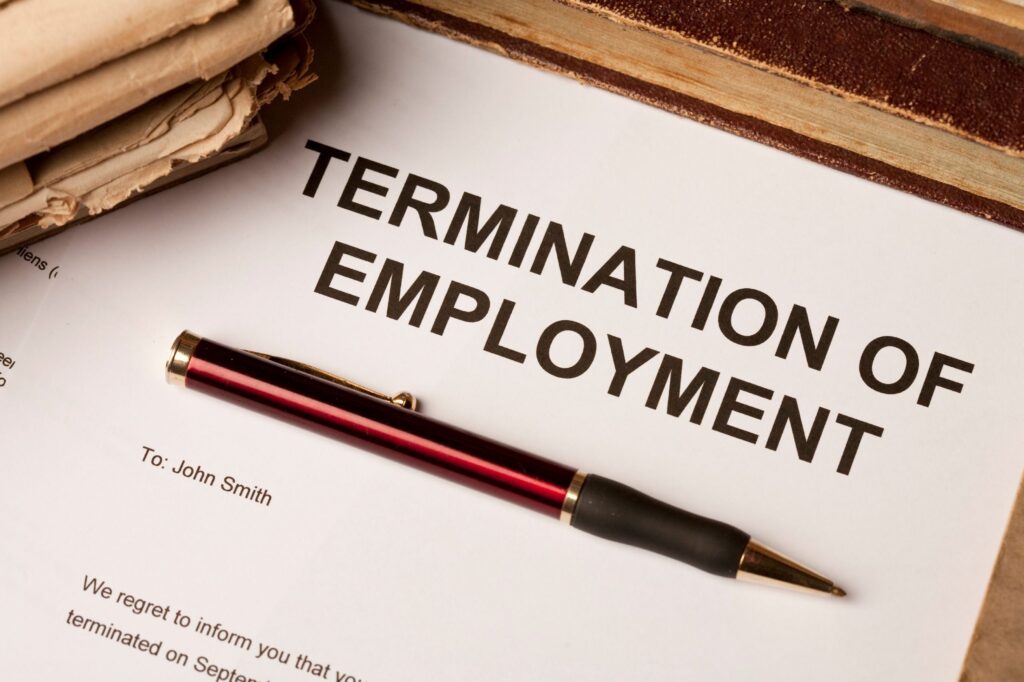It’s common for businesses facing a downturn in trade to let employees go on a temporary basis.
As an employer, you may also need to lay off staff due to financial issues or lack of work. Lay-offs are a temporary measure to try to see out a difficult period after which staff can return to work.
Choosing who to lay off and observing your employees’ legal rights during a round of lay-offs can be complicated. If you don’t follow the right procedures, you could end up facing claims of discrimination or unfair dismissal.
This article examines lay-offs, what makes them different from short-time working, and how to legally select employees and avoid allegations of unfair treatment.
What is a lay-off?
A lay-off refers to a situation where you reduce an employee’s work hours or let them go on a temporary basis.
Laying people off happens when a business has no work available, or you can’t afford to continue paying workers. Depending on the situation, the duration can range from one working day to several weeks.
If an employee is laid off from work, they should expect no work or pay for that period. However, if the period of lay-off persists, employees may be entitled to claim redundancy.
Are temporary lay-offs in Ireland legal?
Under the Redundancy Payments Acts, there are three elements that are essential to an employer for an employee lay-off to be legal.
- Your business must be unable to provide work for your staff.
- You must believe the situation is temporary.
- You must provide notice to staff of the need for lay-offs.
What is the difference between a lay-off and short-time working?
Under the Redundancy Payments Acts, short-time work occurs when the employee:
- Works less than half of their contractual weekly hours.
- Receives less than half of their weekly pay.
It’s important to note that short-time work isn’t the same as working reduced hours. Working reduced hours is when an employee receives more than half of their weekly hours or pay.
What are my employees’ rights around lay-offs?
If you don’t have lay-off and short-time working clauses in your employment contracts, you need to secure the express agreement of the relevant employees before confirming a period of unpaid lay-off.
You may be able to rely on custom and practice in your business if your contracts don’t provide for a right to use unpaid lay-off and short-time.
In the absence of:
- a contractual right to use unpaid lay-off,
- custom and practice in your business/industry, or,
- the employees’ agreement…
…then, your staff can technically insist on being paid during a period of lay-off.
If the alternative to foregoing pay is redundancy, however, the employees may agree to a temporary period of lay-off if it means it will save their jobs.
Are employees still entitled to holiday benefits during lay-offs?
Employees are still legally employed during lay-offs, and so are entitled to public holiday benefits. But the holiday must fall during the first 13 weeks of their lay-off.
Part-time employees can receive public holiday benefits if they’ve worked for 40 hours in the five weeks before the public holiday.
How to manage a lay-off in the workplace
You should provide written information on lay-offs in your employment contracts, policies, and employee handbook.
This is the best place to set out all the relevant information and confirm that lay-offs will be unpaid if they become necessary.
Selecting employees for lay-off
Whether you’re dealing with lay-offs, short-time working, or redundancy, you must ensure that you use fair and objective methods of selection if only some of your employees are being laid off.
Under the Employment Equality Act (2015), you must not treat one employee less favourably than another based on any of these protected characteristics:
- age
- civil status
- disability
- family status
- gender
- membership of the Traveller community
- race
- religious belief
- sexual orientation
If an employee thinks they were selected because of any of the above characteristics, they may raise a discrimination claim to the Workplace Relations Commission (WRC).
Can you lay off an employee without notice?
You must give as much notice as reasonably possible to staff before confirming lay-offs or short-time work. It’s also important to keep employees informed of any developments or changes.
Can a laid-off employee claim for redundancy?
Laid-off employees can make a redundancy claim if the period of lay-off or short-time work lasts for:
- four consecutive weeks, or,
- six weeks within the last 13 weeks.
Employees should provide their redundancy notice in writing. If you don’t reply to their written notice within seven days, it is taken that you have agreed to make them redundant.
If you believe you will have work for the employee, you should issue a counter-notice within seven days of their redundancy notice confirming that you will have work within four weeks of the date of their claim or work that will last for at least thirteen weeks without any further lay-off or short-time.
Expert HR guidance on lay-offs with Graphite
Lay-off, short-time work, and redundancy are some of the most technical areas of employment law.
If you’re not familiar with this area, you may even end up making a difficult situation worse.
Speak with a Graphite HR advisor for assistance with this or any employment matter facing your organisation on 01 886 0350.








